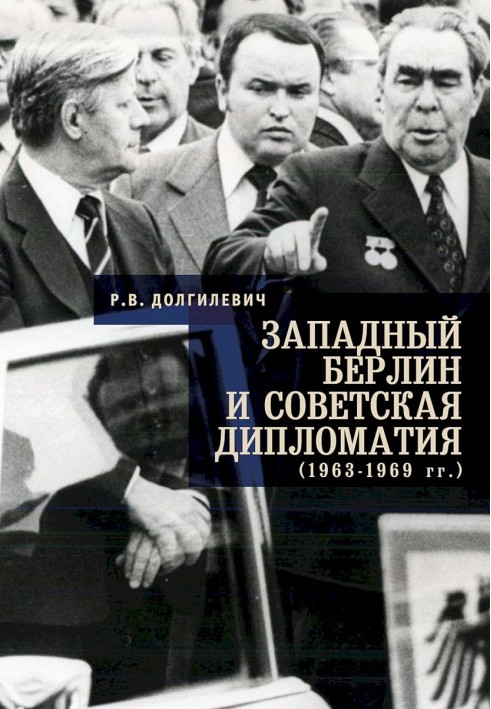West Berlin and Soviet diplomacy (1963–1969)
 Instant download
Instant download
after payment (24/7)
 Wide range of formats
Wide range of formats
(for all gadgets)
 Full book
Full book
(including for Apple and Android)
At the turn of 1962/1963 The USSR postponed indefinitely the projects for concluding a German peace treaty and turning West Berlin into a “free city”. In the summer of 1964, Soviet diplomacy finally moved from the idea of a “free city” to the concept of an “independent political unit” of West Berlin. Now the cutting edge of Soviet policy was directed not against the positions of the United States, England and France in West Berlin, but against the federal presence in this city. After the leadership of L. I. Brezhnev came to power in the USSR, Soviet policy on the issue of West Berlin for some time remained the same as during the “late Khrushchev”. The Soviet Union continued to insist that West Berlin constituted an "independent political entity." In early 1969, the “third Berlin crisis” broke out, during which the USSR avoided steps that could lead to a dangerous escalation of the situation. In addition, Soviet diplomacy was looking for opportunities to support the Social Democrats led by W. Brandt on the eve of the Bundestag elections in September 1969. On July 10, 1969, the USSR announced its readiness to exchange views with the Western powers on issues related to West Berlin. This was the beginning of a turning point in the West Berlin issue.
Data sheet
- Name of the Author
- Ростислав Долгилевич Владимирович
- Language
- Ukrainian
- Release date
- 2018














